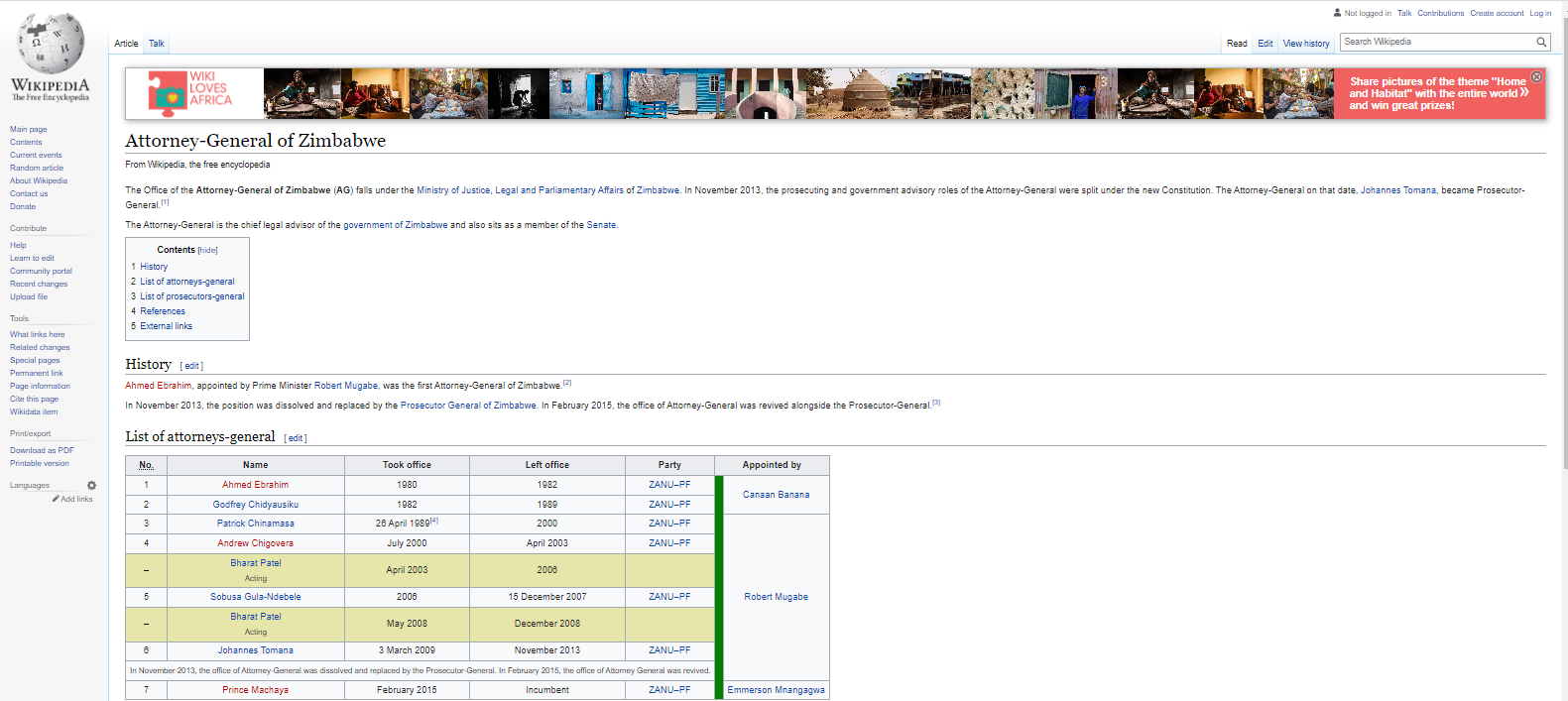Published
2 years agoon
By
Peter Smith
In the matter under Case Number CCZ 34/21, the Applicant, Mr. Tichaona Mupasiri, launched his application and served it at the Attorney General’s office believing that s114 of the Constitution was applicable.
Mr. Mupasiri explains the reason and logic behind the targeted Respondents as follows:
“At the time, I launched the application, I will alive to the background and reason why s167 is limited to the apex court’s exclusive jurisdiction in determining the merits or demerits of a complaint regarding the breach of a constitutional duty imposed specifically on the President as the constitutional head of the government of Zimbabwe.
I knew that no President who is not conflicted would miss any opportunity to correct a record that may exist with or without his knowledge regarding his conduct.
I wrote a letter to Manikai, the author of the utterances made in a chat with Mr. Fred Mutanda on 27 March 2021 or after 17 years of the placement of SMM under the control of an Administrator appointed by Chinamasa in his capacity as a purported representative of a creditor of SMM.
It was alleged that SMM was indebted to the state solely because its ultimate beneficial shareholder, the person of Mr. Mutumwa Mawere had diverted SMM’s export proceeds in SA resulting in SMM being forced to borrow funds from the state.
If this version was true and fact, I reckoned that any bona fide creditor, would not need the agency of a Minister of Justice to assist in debt collection when such an eventuality of a defaulting debtor is a common occurrence in relation to companies as going concerns.
I could not find any justification for the actors like Chinamasa using public power to create facts and circumstances in respect of a debtor like SMM being targeted by creating a special law providing for a creditor in the name of the state being clothed with powers to self-help and benefit from a law specifically crafted to create a new class of corporate citizenship in the name of the state.
After the revelations by Manikai, I took an interest in better understanding the facts and circumstances that informed the decision to divest and deprive shareholders of SMM in the manner that unfolded the abortive attempt to extradite Mawere from SA to Zimbabwe in May 2004.
The more I tried to understand the facts the more the knowledge I obtained from pedestrian sources did not make sense.
This called for me to use the FOSMM and JUROL platforms to reach out to Mr. Mawere and others who possessed personal knowledge to help respond to the frequently asked questions as follows:

When I chose to seek refuge in s167 of the Constitution as the appropriate point of departure in my quest for the truth, it never dawned on that the President was going to be involved and impose his power and authority to have a conflicted person like Manikai get the agency to defend him.

On 24 December 2021, I was served with two affidavits one that was deposed to by the President opposing my application and the second one by Manikai.
I already knew that my application had already been thrown to the wolves by President Mnangagwa who I expected to treat my complaint with the seriousness it calls for.
Regrettably, this opportunity was squandered by the President. This resulted in my taking the next step of writing directly to DMH to establish whether the decision by the President was facilitated by the office of the AG or the President had unilaterally engaged DMH using public resources.
I wrote a letter dated 27 December 2021 naively believing that following rules and the law is what would ordinarily guide a lawyer, I was surprised that DMH ignored my gesture completely.
The next thing is that DMH had gotten the attention of a nameless and faceless judge who directed that matter be set down for hearing on 9 March 2022 even before resolving the authority question that I had flagged.
It was already obvious that the outcome of my application could already have been predetermined.
Following the receipt of the letter informing me that the hearing of this dispute had already been set down, I immediately launched an interlocutory application seeking the relief set out below:

It is clear from the above that the issue of authority was central to my application seeking a declaration by the Court setting out the procedures including the limitations imposed by the constitution in respect of engaging private law firms in providing external services in relation to litigations of the kind I launched.
I only got the answer from Mr. Gondogwa on behalf of DMH’s clients, the President, and Mr. Manikai, in response to Mawere’s challenge regarding his recusal application, that DMH had been appointed by the President to defend him with public resources.
However, the facts of the matter speak to a completely different narrative that the decision by the President to oppose my s167 application was made without the knowledge and involvement of the office of the AG.
It was only after realizing that I had raised the issue that an attempt was made by correspondences to mislead the court into believing that DMH’s agency was procured by the AG when this is false.
My experiences since launching my application confirm that DMH’s relationship with the President does not fall into the category of attorney to client realm.”
WHO POSSESSES AUTHORITY TO APPOINT AND PAY FOR THE SERVICES OF PRIVATE LAWYERS TO ACT IN ON BEHALF OF PUBLIC OFFICE BEARERS?
This is a question for our readers to comment in the quest to create a Zimbabwe that is accountable and transparent.




Warning: Undefined variable $user_ID in /home/iniafrica/public_html/wp-content/themes/zox-news/comments.php on line 49
You must be logged in to post a comment Login